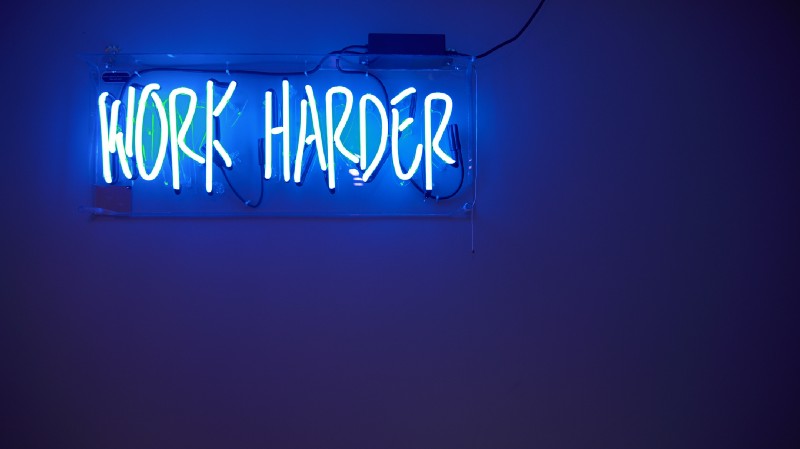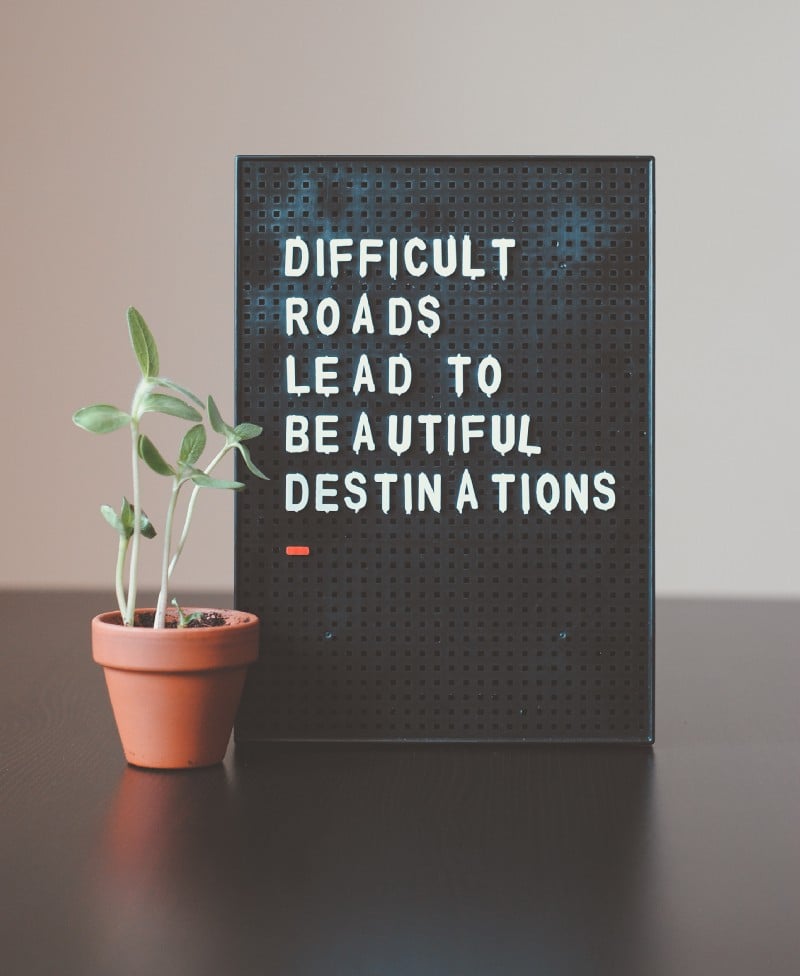
How I changed working hard to working smart

Today I want to tell you a story about how I changed 'working hard' to 'working smart' and why we all should do it too.
This is a story about the importance of our attitude - on a personal and professional level. About how the culture of an organization can affect you an employee. But first... who's writing this? What's my background?
I’M NOT A GIRL, NOT YET A WOMAN
I'm too young to die, but I'm old enough to have experience. I've worked for several companies, including a corporation, agencies, and small businesses. Every one of them had almost the same (poor!) approach to management, people, and clients. I've learned damaging habits, and I know that many people share them too.
Last month I found a completely different approach and culture in the Untitled Kingdom, a software house, which I'm publishing this text for.
'I can see clearly now the rain has gone and so many things I was doing just wrong'. What was it?
.jpeg)
YOU’RE TOO GOOD TO WORK IN A BAD ENVIRONMENT
First of all, I found out that the 'I've got 99 problems' but the organization can be almost every one of them. Even if you're productive, organized, and have the right mindset, a dangerous environment can destroy you.
What did I change after just one month of absorbing rules and conditions at the Untitled Kingdom? It's not only working in scrum and agile methodology. Quality, transparency, and family are values that spread over every activity at work. What does it specifically mean? I'll explain in 3 points:
1. YOU REQUIRE QUALITY? GIVE QUALITY!
You're told to give the best quality of your work. Still, you see that no one cares about the comfortable office, efficient computers, most recent software, or even quality feedback.
Quality should spread over every level in a company. In the Untitled Kingdom, it's a goal that unites us all. Developers, leaders, heads, and CEO. - we're all equally working to achieve the best quality.
Our office (after all, our workplace) reflects that. That's why we have high-quality desks and chairs, air purifiers. That's why we use the best hardware (yes, we all love Apple) and software.
Quality is also in our attitude to peers at work. We give quality feedback. We believe that great things sometimes have their beginnings in mistakes. Experiment. Fail. Learn. Repeat. A company is the people. When people are happy, ambitious and they develop their skills, the company develops itself too.
2. FAMILY AT WORK? IS IT A SECT?
I know that speaking about a family at work is funny. Moreover, sounds sectarian. What does it mean?
We care about each other. We don't only remember about our birthdays, but what's more important, believe each other, understand that we're just humans. We make mistakes, and that's ok.
We all fret about the stability and pleasant atmosphere. When we recruit new people, we ask about experience and skills AND interests, important values, and personality traits.
3. DON’T ASK, JUST DO IT. REALLY? WHAT IS TRANSPARENCY
When working with a family, there's no need to hide or lie about anything. A family means support, protection, and consistency. You can be yourself. You don't need to know everything. You can ask, no matter what it is.
In the Untitled Kingdom, nobody's waiting for your mistake to laugh about it when it's often a standard procedure in corporations. Thanks to it, we avoid many errors or wasted time. We don't judge. We give feedback.
To know well what's going on in a company, we have group 'Stand-up' meetings once a week. We all gather in a circle and talk about our achievements, plans, blockers, and fun facts. We are also invited to attend the 'Leaders' meetings' to be up-to-date with our organization's financial, operational, sales, and marketing parts. No need to hide anything.

REST IS FOR THE WEAK. HAHA
Yes, maybe rest is for the weak, especially when you're at a party and want to coax your friend into more drinks and dancing.
For a few years, I've been working 12+ hours a day. During my studies, I did internships and worked as a freelancer. After graduation, I mixed a full-time job with freelance projects. Then, I was used to working overtime over the weekends, and I believed that's what successful people do.
In fact… they don't. See what, e.g., Richard Branson says about work and other winning people. They put maximum effort to work smart, not just hard.
Working 12+ hours a day, I really could do a lot, but my creativity was blocked. I've been solving many tasks, but I wasn't satisfied with the quality. I've learned to be 'fast and furious,' but I missed a strategic approach. In the end… I was just 'sick and tired.' During the rest of my free time, I couldn't think about work or read business books, magazines, blogs. I stopped developing my skills.
Know that feeling?
Now I know. Resting for work is what sleeping is for a body. What rain is for flowers. Or what the Earth is for the Moon (ok, ok, that's it). Time for hobbies or traveling, meeting friends, and sports are necessary to unblock creativity, clear your mind, and have maximum energy to work productively every day. When a company wants to have robust and happy employees, it should support it. The untitled Kingdom does, and I'm glad about that.
It doesn't matter how many hours you work; it's how effectively you work that matters. Also, to work productively, you need to rest. Unless you're a robot.
Are you a robot? Are you, really? How are you enjoining this text so far?

LET’S HAVE A MEETING ABOUT THE MEETING BEFORE THE PRE-MEETING MEETING
So, when we talk about effectiveness… Don't you think that most of your meetings are unnecessary? No agenda, no action plan, too long, too many people, people who are not responsible for the discussed topic? How much time could we spend on more important tasks? Or rest? Or plan and organize work better? Sometimes the Pareto principle is a perfect solution. 80% time for planning and 20% for actual work.
In the Untitled Kingdom, we have 'Effective meeting rules,' and everybody sticks to them. Throughout the whole month, I was never invited to a meeting that was not productive. Or I would feel unnecessary.
Again, I need to say a word about a healthy environment (you could name it: agile, scrum, lean, whatever), where we focus on productivity and the company's rules are respected by everyone.
We have OKRs and simple metrics to organize our work. Everybody knows what you're working on; whether you're overwhelmed; or free to help somebody else. Makes sense, right?

WHAT I WANTED TO TELL YOU
After just one month of working in these healthful conditions, I bloomed. I started to work smarter, not harder. From my perspective, happy employees and effective work depend on:
1. The organization, management, values that are followed by everyone.
It's the foundation.
2. Time for rest and time for self-development.
Smart work instead of hard work.
3. Not wasting time on the bullshit meetings. Instead: productive meetings.
Of course, it's not everything that makes a company a great place. However, these are, for me, the most important basics.
Check out available job opportunities at the Untitled Kingdom:
https://www.untitledkingdom.com/careers
